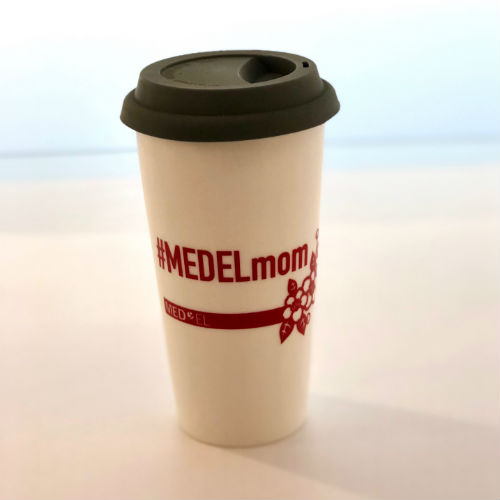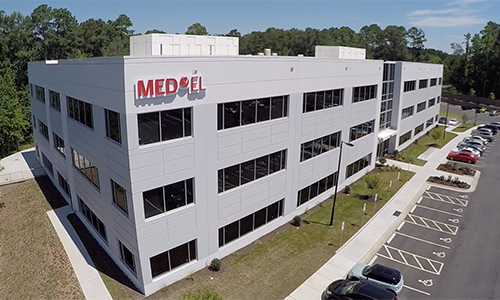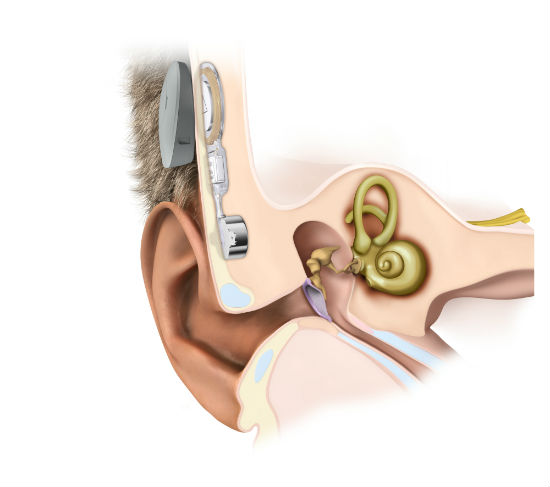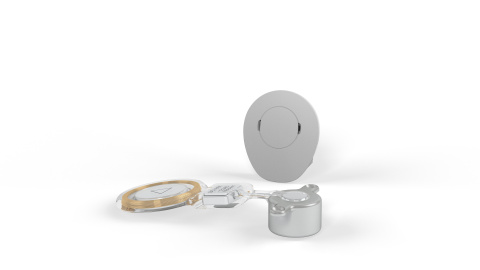
MED-EL Says, 'Call Mom' on Mother’s Day

Hear ye, hear, ye! Mother’s Day is coming Sunday, May 12. All moms would appreciate a phone, Skype or FaceTime call, even if it’s not possible to spend time in person with their children on this special day.
Is yours going to be on one of the estimated 122 million phone calls made in the U.S. this Mother’s Day? Whether making or receiving that call, central to the connection is simply hearing each other’s voices.
However, for people living with hearing loss, making or receiving that phone call – a daily occurrence that most people take for granted – can be challenging. About 20% of Americans, or 48 million people, report some degree of hearing loss, from mild to profound.
According to a survey commissioned by Durham-based hearing solutions company MED-EL USA, voices of family members or partners was the sound most Americans (67%) would miss if they could no longer hear. Conversations with friends and loved ones was the highest mentioned (by 81%) everyday situation that would be affected by hearing loss.

-- MED-EL photos
MED-EL USA is releasing results of this survey – and giving away merchandise through a weeklong Facebook campaign – to help raise awareness of issues surrounding hearing loss, as well as interventions that can help restore access to the world of sound.
May is the annual observance of Better Hearing and Speech Month. To celebrate the importance of access to sound and family connections, the company is incentivizing us to connect with our mothers, children or grandchildren by giving away #MEDELmom ceramic tumblers daily, May 6-12, to people who have done so and shared an inspirational post from MED-EL USA’s Facebook page.
“MED-EL’s mission is to end hearing loss as a barrier to communication around the world,” said Raymond Gamble, CEO and president of MED-EL North America, which oversees both MED-EL USA and Canadian operations. “We recognize the role that hearing technology plays in helping to maintain vital connections among family members, on Mother’s Day and every day. If a mother or child finds that making a phone call has become difficult, we want to encourage them to get in touch with MED-EL to see if we have resources that can help.”
MED-EL HearPeer Scott Murray reflected on his emotional experience with his mother during his cochlear implant (CI) activation in 2015 at the age of 30:

“There were three people at my activation besides me, including my audiologist. My mom was there. We were going around the room and they were talking one at a time. At first, I was very confused because everything sounded discombobulated. We got to my mom and she started talking, and she sounded the most normal. And I said, ‘Everyone sounds strange and you sound normal.’ And she started crying right there.”
HearPeers is an online community website that enables MED-EL implant users to interact and share their experiences with each other. Certain features of the website are also available to the general public including the forums. The forums are a particularly good resource for questions and answers, especially for implant candidates and those interested in CI. Murray serves as a mentor, in addition to his being a member of the HearPeer Community.
Murray was born with normal hearing and noticed gradual loss starting around age 14. He said he visited nine ear, nose and throat doctors with no definitive diagnosis. For years he just “got by” with his residual hearing, which, he said, was a struggle at times, and gained a little proficiency with lip reading. About four years before getting the implant, he began using a hearing aid, which helped significantly. Currently, he lives in Chicago and works as an analyst for United Airlines.
“Travel is one of my passions, and I think getting to experience different places and cultures (hearing and otherwise) is one of the most valuable things we can do. I got involved with HearPeers about a year after getting implanted, when I sought out opportunities to give back through MED-EL. HearPeers and working with the MED-EL staff and CI community has been immensely rewarding. And, yes, my mom has always been as supportive, positive and encouraging a mom could possibly be – which obviously helps in life!” he said.
It sounds like Murray won’t have any trouble remembering to call his mom on Mother’s Day.
About cochlear implants

A CI is an electronic medical device that replaces the function of the damaged inner ear (cochlea) to provide sound signals to the brain. CIs do not restore normal hearing, but instead give people who are deaf or severely hard-of-hearing useful representation of sounds in the environment and help them to understand speech, unlike hearing aids, which make sounds louder. The implant consists of an external portion that sits behind the ear and a second portion that is surgically placed under the skin. The device contains four parts: a microphone, which picks up sounds from the environment; a speech processor, which selects and arranges sounds picked up by the microphone; a transmitter and receiver/stimulator, which receive signals from the speech processor and convert them into electrical impulses and an electrode array, that collects the impulses from the stimulator and sends them to different regions of the auditory nerve.
Hearing through a CI is different from normal hearing and takes time to learn or relearn. However, it allows many people to recognize warning signals, understand other sounds in the environment and understand speech in-person or over the phone.

CIs have been approved to treat hearing loss in adults by the U.S. Food and Drug Administration since the mid-1980s. The FDA approved their use to treat eligible children, beginning at age 12 months, in 2000. Use of a CI by young children exposes them to sounds during an optimal period to develop speech and language skills. Research has shown that children treated early with a CI – before the age of 18 months – followed by intensive therapy are better able to hear, comprehend sound and music and speak than their peers who receive implants when they are older. Studies have also shown that eligible children who receive a cochlear implant before 18 months of age develop language skills at a rate comparable to children with normal hearing, and many succeed in mainstream classrooms, according to the National Institute on Deafness and Other Communication Disorders (NIDCD), part of the National Institutes of Health. Approximately 324,200 CIs have been implanted worldwide. In the U.S., approximately 58,000 CIs have been implanted in adults and 38,000 in children, as of the end of 2012, the most recent data available from NIDCD.
About Hearing Loss in America
Hearing loss has been shown to negatively impact nearly every dimension of the human experience, including physical health, emotional and mental health, perceptions of mental acuity, social skills, family relationships, and self-esteem, as well as work and school performance, according to the Hearing Loss Association of America. There are numerous causes of hearing loss, ranging from heredity, birth complications, viral infections and exposure to loud noises. Hearing loss is also associated with aging, as the tiny hairs of the inner ear that process sound die over time and do not regenerate. The World Health Organization recommends a range of interventions to improve communication once hearing loss has occurred, including hearing implants.
About MED-EL
MED-EL Medical Electronics, a leader in implantable hearing solutions, is driven by a mission to overcome hearing loss as a barrier to communication. The Austrian-based, privately owned business was co-founded by industry pioneers Ingeborg and Erwin Hochmair, whose groundbreaking research led to the development of the world’s first micro-electronic multi-channel CI, which was successfully implanted in 1977 and was the basis for what is known as the modern CI today. This laid the foundation for the successful growth of the company in 1990, when they hired their first employees. To date, MED-EL has grown to more than 2,000 employees and 33 subsidiaries worldwide, including 100-plus employees in Durham.
The company offers a wide range of implantable and non-implantable solutions to treat all types of hearing loss, serving people in 123 countries. MED-EL’s global portfolio of hearing solutions includes cochlear and middle ear implant systems, a combined Electric Acoustic Stimulation hearing implant system as well as bone conduction devices.
